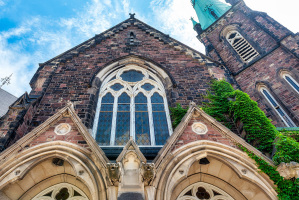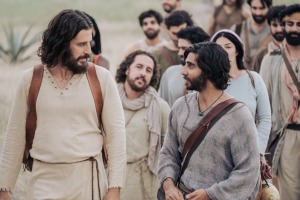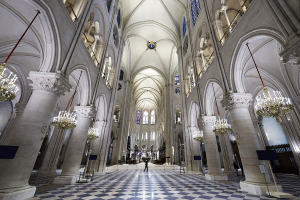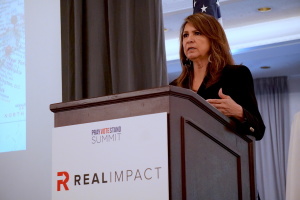Crossing the road of racial divide
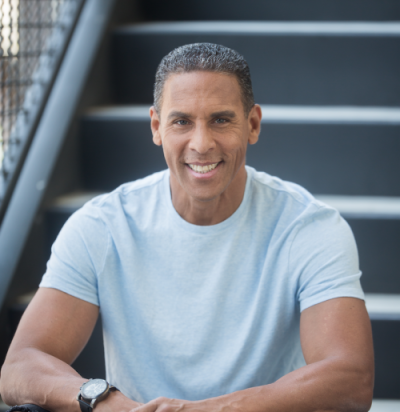
I remember it vividly. When I was 8 years old, Martin Luther King Jr. was shot while standing on a motel balcony. I was too young at the time to comprehend all of the details surrounding his death, but I was old enough to feel the weight and significance of the moment. As I processed the situation, I began asking questions.
How could someone do something like that? What kind of hatred could inspire someone to kill? And what should we do? What can we do?
These are the questions that ultimately led me on the journey of writing The Third Option, and these are the questions that continue to circulate in my mind as we celebrate Black History Month.
There are deep and festering wounds of racial division in our country that are still in need of healing. We still need to be asking, what can we do now?
Importantly, Black History Month is about more than just a month, and it is about more than just history. Black History Month is about our future.
It is about a future of consistently and loudly honoring our Black brothers and sisters as they continue to contribute remarkable things to society. It is about a future of acknowledging color and appreciating our differences while also recognizing that we are all more alike than we are different. It is about a future in which the binary “us vs. them” mentality that culture presents us with is replaced by a third option.
But if this is truly to be our future, then the Church must take its rightful place at the forefront of racial unity and reconciliation.
Why? Because racial unity is God’s idea and God’s mission, and he empowers his church through the Holy Spirit to carry out his mission on the earth.
We have to look no further than the Bible to see that this is true! In Matthew 22:37-39, we learn the primary commandments that Christians are called to follow: to love God wholeheartedly and to love our neighbor as we love ourselves.
And in case we need any clearing up about who our neighbor actually is, Jesus makes it very obvious for us in Luke 10. When a lawyer asks Jesus who exactly counts as his neighbor, Jesus responds by telling the parable of the “Good Samaritan”.
The parable of the Good Samaritan is the story of a person who crossed a racial divide to help someone who was in need. The hatred that existed between the Jews and the Samaritans during the 1st century was pervasive, fierce, and longstanding, but the Samaritan in this story recognized the beat up and destitute Jewish man as his neighbor. Compassion superseded racial division, and he crossed the road to love someone who he had likely been culturally conditioned to avoid.
For the priest and the Levite in the story, the Jewish man on the side of the road was viewed as little more than a distraction on the way to what they viewed as actually important. For Jesus, however,the hero of this story is the one who made racial reconciliation a priority.
It is worth noting that right before this, in Luke 9, Jesus was rejected by a Samaritan village that he passed through. His disciples had been ready to “tell fire to come down from heaven and consume” the Samaritans (Luke 9:54), but Jesus rebuked them for their reaction.
A few paragraphs later, he chose to make a Samaritan the hero of his story about being a true neighbor. By telling a story that humanized a people group who had rejected him, Jesus taught his disciples a valuable lesson. Rather than dehumanizing people through thoughtless labels, label everyone as your neighbor!
So what can we do to help heal the gaping wounds of racial division in our country? It has to start with me, and it has to start with you.
How far are you willing to go to be like Jesus? How far are you willing to go to love your neighbor? Will you pray for people you disagree with? Will you work to understand others better? Will you embrace opportunities to serve others when it feels inconvenient for you?
Like the Good Samaritan, will you put your whole heart into reconciliation and go out of your way to cross the road of racial divide?
As we take time this February to celebrate Black History Month, let’s remember that racial reconciliation is God’s idea, and it has to begin with his Church. I pray that the Holy Spirit would fill your heart with more compassion and love than you have ever had.
I pray that all of us – the Body of believers who make up the Church – would become radically committed to loving our neighbors.
Miles McPherson is the Senior Pastor of the Rock Church in San Diego. He is also a motivational speaker and author. McPherson's latest book “The Third Option” speaks out about the pervasive racial divisions in today’s culture and argues that we must learn to see people not by the color of their skin, but as God sees them—humans created in the image of God.
Link: https://milesmcpherson.com
Instagram: https://www.instagram.com/milesmcpherson/
FB: https://www.facebook.com/pastor.miles.mcpherson/
Twitter: https://twitter.com/milesmcpherson

















